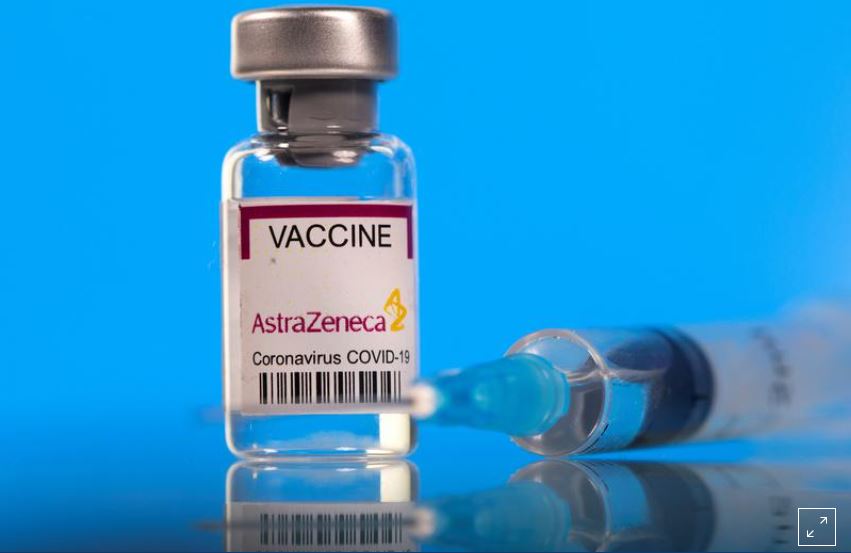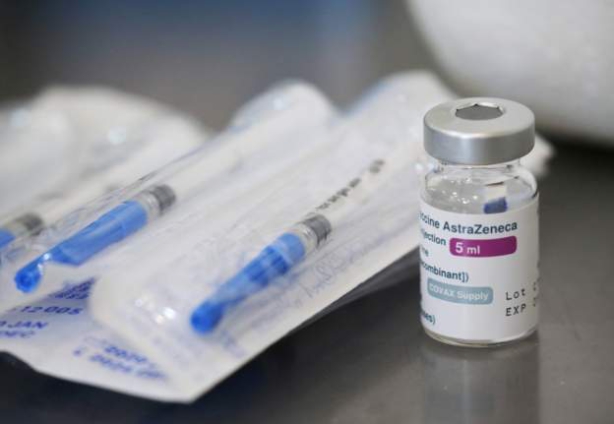AstraZeneca’s Covid-19 vaccine performed better than expected in a major late-stage trial, potentially paving the way for its emergency authorization in the United States and bolstering confidence in the shot after numerous setbacks in Europe.
The drugmaker said on Monday that interim data from trials in Chile, Peru, and the United States found the vaccine, developed in conjunction with Oxford University, was 79% effective in preventing symptomatic Covid-19 and, crucially, posed no increased risk of blood clots. It intends to request U.S. emergency authorization in the coming weeks.
More than a dozen European countries, including Germany and France, had halted use of the AstraZeneca vaccine earlier this month after reports linked it to blood clots in a very small number of people. They have since resumed inoculation after a regional regulator said it was safe, but an opinion poll on Monday showed Europeans remained sceptical over its safety.
Hailed as a milestone in the fight against the Covid-19 pandemic when it first emerged as a vaccine contender last year, the AstraZeneca shot has since been dogged by doubts over its efficacy, dosing regimen and possible side-effects as well as supply setbacks in Europe, where the company has been at the centre of a growing conflict between Brussels and London over so-called ‘vaccine nationalism’.
The latest data has yet to be reviewed by independent researchers, but it helps to address some of the concerns, analysts said.
“It is clear this vaccine has very good efficacy (remember that 60% was, prior to any trials being started, regarded as a good target), and that this efficacy does not show a notable decline at older ages,” Stephen Evans, Professor of Pharmacoepidemiology at the London School of Hygiene & Tropical Medicine, said.
Based on more than 32,000 people, the trial was larger and around 20% of volunteers were aged 65 and above, compared to 5.7% in an earlier British trial. The scarcer data had made some European countries hesitant to use the AstraZeneca shot on older people.
“Seeing this data now I hope gives others increased confidence that this is a very effective and safe vaccine,” Mene Pangalos, an AstraZeneca executive vice-president, told a news briefing.
AstraZeneca shares were up 2.6% in London, their highest since Feb. 19.
U.S. trials of rival vaccines from Pfizer and Moderna, which are being deployed in the United States, have showed efficacy rates of around 95%.
But the AstraZeneca vaccine, which is already widely used outside the United States, is seen as crucial to tackling the spread of Covid-19 across the globe because it is easier and cheaper to transport than rival shots.
Political leaders have come forward for the vaccine to try to boost confidence.
“I have just finished getting the (AstraZeneca) injection, there is no pain at the injection site, and there is no soreness of the body,” Taiwan Premier Su Tseng-chang told reporters as the island launched its inoculation campaign on Monday.
British Prime Minister Boris Johnson received his first dose of the AstraZeneca Covid-19 vaccine on Friday, saying he “did not feel a thing.”
And French President Emmanuel Macron has said he would take the AstraZeneca vaccine if that’s what was offered after previously being quoted as saying the shot was “quasi-ineffective”.
Headwinds
The AstraZeneca vaccine has already been granted a conditional marketing authorization or emergency use in more than 50 countries, spanning four continents.
But it has yet to be approved in the United States, where President Joe Biden is stepping up the federal response to the pandemic by expanding testing, ramping up vaccinations and boosting production.
University of Oxford professor Sarah Gilbert told BBC radio that work to prepare a submission for Emergency Use Authorization in the United States will take a few weeks. A company spokesman said the filing would likely be in the first half of April.
If the AstraZeneca vaccine gets U.S. approval, it would be the fourth after Pfizer, Moderna and Johnson & Johnson. Some analysts have said the United States might use its AstraZeneca stockpile to largely support other countries rather than for domestic use.
But Ruud Dobber, a AstraZeneca executive vice president, said on Monday he would be “very surprised” if the company’s vaccine were not used in the United States.

The AstraZeneca shot uses a modified version of a chimpanzee common cold virus to teach the human body to make proteins from the novel coronavirus to generate an immune response and prevent infection.
Many Asia-Pacific countries heavily rely on the AstraZeneca vaccine to end the pandemic, as the shot is being used in inoculation programmes in Australia, South Korea, the Philippines, Vietnam, Thailand, and India.
Some states in India, which has the highest coronavirus caseload after the United States and Brazil, are seeking to accelerate the vaccination drive, as the country reported its most COVID-19 cases and deaths in months on Monday.
As vaccine demand rises at home, top producer the Serum Institute of India has delayed further shipments of the AstraZeneca shot to Brazil, Britain, Morocco and Saudi Arabia..
AstraZeneca has set a target to produce 3 billion doses this year, with India’s Serum Institute making most of that aimed at poorer nations.
In Europe, meanwhile, the European Union has threatened to block exports of COVID-19 vaccines to Britain to safeguard scarce doses for its own citizens, with Commission President Ursula Von der Leyen saying the epidemiological situation was worsening.
Latest Stories
-
DAMC, Free Food Company, to distribute 10,000 packs of food to street kids
5 minutes -
Kwame Boafo Akuffo: Court ruling on re-collation flawed
24 minutes -
Samuel Yaw Adusei: The strategist behind NDC’s electoral security in Ashanti region
26 minutes -
I’m confident posterity will judge my performance well – Akufo-Addo
38 minutes -
Syria’s minorities seek security as country charts new future
1 hour -
Prof. Nana Aba Appiah Amfo re-appointed as Vice-Chancellor of the University of Ghana
1 hour -
German police probe market attack security and warnings
1 hour -
Grief and anger in Magdeburg after Christmas market attack
1 hour -
Baltasar Coin becomes first Ghanaian meme coin to hit DEX Screener at $100K market cap
2 hours -
EC blames re-collation of disputed results on widespread lawlessness by party supporters
3 hours -
Top 20 Ghanaian songs released in 2024
3 hours -
Beating Messi’s Inter Miami to MLS Cup feels amazing – Joseph Paintsil
3 hours -
NDC administration will reverse all ‘last-minute’ gov’t employee promotions – Asiedu Nketiah
3 hours -
Kudus sights ‘authority and kingship’ for elephant stool celebration
3 hours -
We’ll embrace cutting-edge technologies to address emerging healthcare needs – Prof. Antwi-Kusi
4 hours

